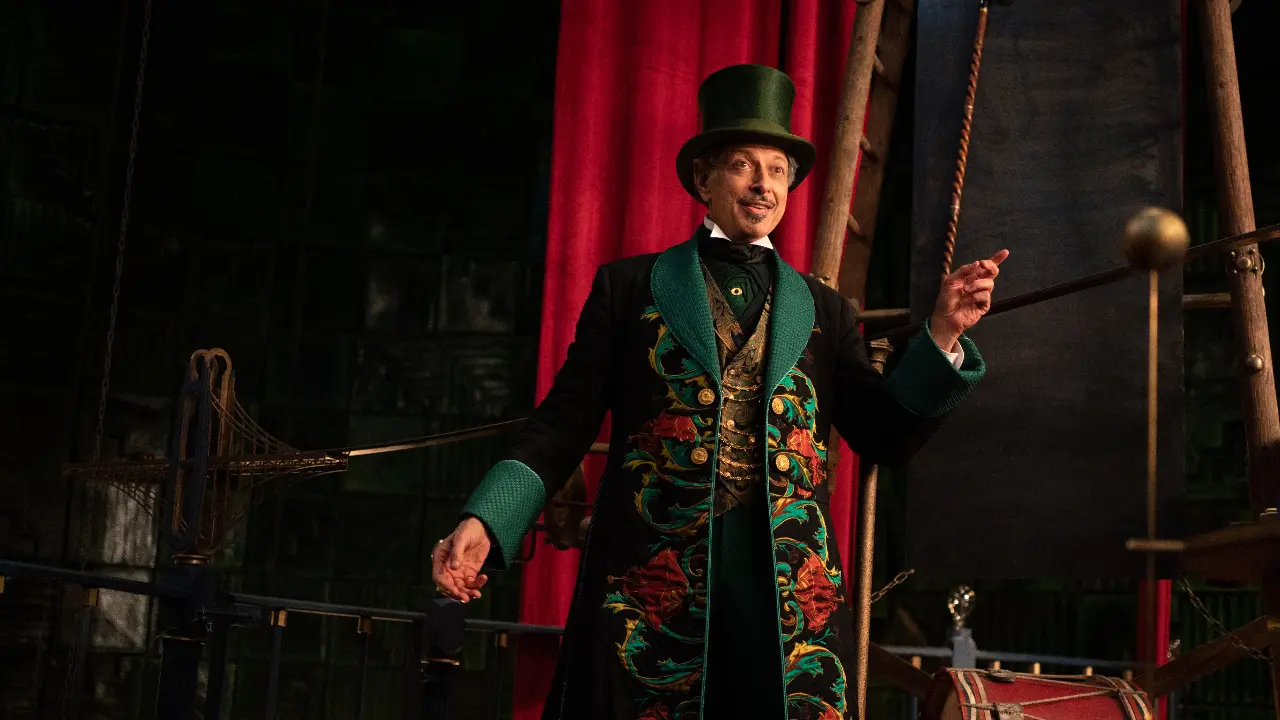
Director: Jon M. Chu
Cast: Ariana Grande, Cynthia Erivo, Michelle Yeoh, Jeff Goldblum, Jonathan Bailey, Ethan Slater, Marissa Bode
Wicked: For Good is a musical fantasy film, an adaptation of Stephen Schwartz and Winnie Holzman`s 2003 Tony Award-winning musical, chronicling the unusual friendship between the Wicked Witch of the West and the Good Witch of the South, and depicting how their lives are altered once they meet the great and powerful Wizard of Oz.
The stage musical was divided into two parts for its film adaptation. Wicked: For Good is the sequel to Wicked (2024). It adapts the second act of the musical, which was loosely based on Gregory Maguire`s 1995 novel Wicked: The Life and Times of the Wicked Witch of the West, itself a reimagining of L. Frank Baum`s The Wonderful Wizard of Oz. It is directed by Jon M. Chu and written by Winnie Holzman and Dana Fox.
The film begins right where the first part ends. Elphaba (Cynthia Erivo) has turned herself into the enemy of Oz in the previous film’s soaring Defying Gravity finale. In the opening sequence of the second part, she liberates oppressed beasts forced to construct the yellow brick road and tries to embattle an army of animals to fight for their rights. Glinda (Ariana Grande), on the other hand, stews in her guilt, recognising her complicity in upholding the corrupt system of the Wizard of Oz, but being unable to turn down the popularity that comes with it.
Part two depicts Elphaba’s journey from her rebellion to her death by a bucket of water. This part lacks the grand spectacle and elaborate choreography of its predecessor and favours an intimate approach to its musical numbers. Part 1 had the advantage of having peppy, whimsical, and energetic musical numbers like Popular and What Is This Feeling. Conversely, new tracks No Place Like Home and The Girl in the Bubble show the character processing their newfound insight. However, No Good Deed is guaranteed to give you goosebumps.
The film satisfactorily explores the concepts of ‘good’ and ‘bad.’ People in Oz are obsessulated with labelling everything as `good` or `wicked,` giving Glinda the chance to deliver a comic line about patenting the word ‘good’. The film begins with Elphaba declaring her desire to be seen as the saviour of Oz, and this is later picked up in the song No Good Deed Goes Unpunished, where Elphaba poignantly introspects, “Was I just really seeking good or just seeking attention?” In a confrontation with Glinda, she stresses, “Good can’t just be a word. It has to mean something,” emphasising that goodness is defined by our choices and actions.
Elphaba grapples with her motives and the weight of public perception, occasionally giving in to inimical tendencies. Yet this struggle leads her to accept the label of `wicked,` underscoring the platitude that morality should not hinge on applause and recognition.
The final duet of nourishing sisterhood, where the two affirm that their friendship has changed them “for good,” feels static. There is little emotional progress, as the narrative is weighed down by repetitive scenes, yet feels hurried at the same time. Opportunities to enrich the characterisation through nuance are never fully realised. For instance, Glinda`s evolution and awakening to her own privilege in The Girl in the Bubble does not resonate with the audience. Even pivotal moments, such as Elphaba liberating the caged animals, feel joyless and squander the dramatic potential. Yet, at its heart, this film is an ode to friendship.
Overall, despite a few moments of cinematic brilliance, most scenes left me watching from a distance rather than being swept into the world of Oz.







